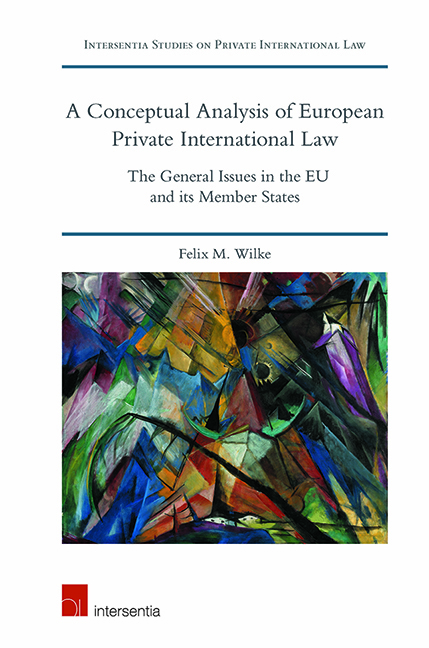 A Conceptual Analysis of European Private International Law
A Conceptual Analysis of European Private International Law Summary
Thus far, it has first been shown that domestic, as well as EU, private international law distinguishes between at least two classes of private international law rules, with one oft en expressly called ‘general’. This is not always done, however, in uniform fashion. It has then been demonstrated that, as a matter of theory, it is reasonable to approach the meaning of ‘general’ from a formal and a substantive perspective, and that, as a matter of checking the theory against existing law and its academic presentations, both approaches together take account of virtually everything designated or treated as ‘general’. As the future of European private international law clearly lies at the level of the EU, the final questions are whether the EU can and should make (formally and/or substantively) general provisions for a ll2 003 of its private international law.
‘Can’ implies the legal dimension (Chapter 5): does the EU have the competence to make general rules of this kind? Which legislative procedure is to be used? How would a respective instrument and the rest of EU private international law interact?
‘Should’ refers to the policy dimension (Chapter 6): does it make sense to create general provisions of EU private international law? What are the advantages and disadvantages of proceeding in this way? Is there any alternative scenario –and is it viable?
Accordingly, law and policy are the two standards by which the idea of general provisions of EU private international law will be examined in the following.
- Type
- Chapter
- Information
- A Conceptual Analysis of European Private International LawThe General Issues in the EU and its Member States, pp. 301 - 302Publisher: IntersentiaPrint publication year: 2019
